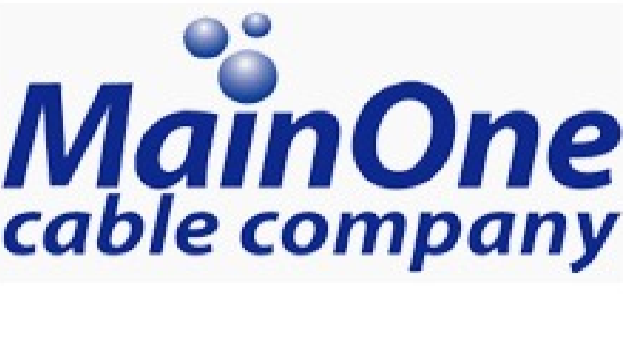Telecom
Survey Shows 58% of IT Decision Makers in Nigeria view Shortage of IT Skills Threat to their Business

As part of the Equinix 2022 Global Tech Trends Survey, 100 business leaders in Nigeria were interviewed about the opportunities and challenges their organizations are facing – and their plans for the future.

As Equinix’s survey data highlights, there are huge opportunities for Nigeria’s businesses to successfully expand into new markets and reach new customers.
The survey in Nigeria revealed that 54% of respondents are planning on expanding in an existing country in the next 12 months, 34% into a new region and 33% into a new country. And that 93% of IT leaders in Nigeria said enhancing customer experience is a priority.
However, a number of potentially limiting factors were identified by businesses when it came to global growth including concerns and challenges in supply chain, cyber security, and staff retention and recruitment.
Supply Chain Challenges
55% said their business was plagued by global supply chain issues and shortages, while 50% specified the global microchip shortage as a threat to their business.
Cyber Security
There remain significant concerns around cybersecurity in Nigeria. Ensuring expansions are supported by resilient digital models is business-critical, particularly at a time of increasing volatility and emerging global threats.
As part of their digital-first strategies, 85% of respondents in Nigeria confirmed a key priority is improving cybersecurity. 88% said complying with local market data regulations is critical, while 85% highlighted the need to futureproof their businesses. According to IT specialists in Nigeria, the most feared threats were cyberattacks (73%), security breaches and data leaks (68%).
Staff retention and recruitment
Despite having one of the youngest populations and workforces in the world, 58% of IT decision makers in Nigeria view a shortage of personnel with IT skills as one of the main threats to their business.
The survey showed that among the most common concerns for businesses in Nigeria are candidates with the wrong skill sets applying for jobs (56%), pay and compensation (49%), changing expectations around ways of working (41%), and the retention of current talent (38%).
Additionally, In Nigeria, the most in-demand tech employees are those with skills in areas such as AI/machine learning, data analysis, cloud computing specialists, data protection, security software development, IT technicians and security analysis
Tools to Grow Businesses
To help grow their businesses, 77% of IT leaders in Nigeria said they plan to move more business functions to the cloud including business-critical applications and security functions.
Hybrid cloud models were the preferred approach for 36% of respondents in Nigeria, although 18% still rely on a single cloud provider and 2% not using the cloud at all.
40% in Nigeria said they plan to facilitate global expansion plans by deploying virtually via the cloud, with over a quarter (26%) – 21% among IT decision-makers in Nigeria – doing so using a bare metal solution.
Meanwhile, 47% globally (46% in Nigeria) said they expect increased spending on carrier-neutral colocation solutions to facilitate the planned rise in digital deployments, while even more (59% at global level, 70% in Nigeria) said they intend to increase investment in interconnection services as they plan to progress digital transformation and build resilience.
COVID accelerates digital evolution
The pandemic also continues to have a significant impact on businesses’ digital strategies. More than half of IT leaders in Nigeria (64%) say they are accelerating their company’s digital evolution because of the COVID-19 crisis.
Indeed, over half (64%) confirm their IT budgets have increased as a direct outcome of its legacy—an insight into the now broadly acknowledged necessity for robust digital infrastructure to pivot to evolving business needs in an instant. Furthermore, almost three-quarters of respondents (73%) believe the technology changes and investments implemented during the pandemic are here to stay.
Funke Opeke, Managing Director, MainOne, An Equinix Company said: “The acceleration in digital transformation in Nigeria reinforces the need for businesses to have access to single points to interconnect locally. Increased speed of connectivity, increased flexibility of connectivity, and reduced cost of connectivity were identified by IT decision-makers in Nigeria as the most beneficial aspects of interconnection. MainOne provides a rich interconnection ecosystem that allows customers connect to each other multiple telecoms networks, and Cloud, Payment and Content Providers in a single location.’’
Telecom
MTN Group Announces Proposed Full Acquisition of IHS Towers

MTN Group has revealed that the board of IHS Towers accepted its offer of US$8.50 per share, positioning MTN to boost its stake to 100% ownership following IHS’s divestment of Latin American assets.

MTN Group
The potential transaction is subject to various approvals and the delisting of IHS from the New York Stock Exchange (NYSE).
Upon the completion of IHS’s announced disposals (on 11 February and 17 February 2026) of its Latin American assets, it is intended that MTN will acquire 100% of IHS’s remaining business.
IHS is one of the world’s largest tower companies, with nearly 29 000 high-quality towers in Africa serving various mobile network operators in five key MTN markets.
The proposed transaction, which follows discussions noted on 5 February 2026, marks an important step to unlock compelling value for MTN and strengthen and
reintegrate its ownership of critical digital infrastructure across Africa. For IHS shareholders, it provides them with an attractive opportunity to crystallise value.
The funding for the proposed transaction of the remaining shares MTN does not already own, for a consideration of some US$2.2 billion, will be through cash of
approximately US$1.1 billion on IHS’s balance sheet, along with available liquidity and debt from MTN.
MTN has approximately 24.7% shareholding in IHS. As part of the transaction, it intends to take the company private through the acquisition of all outstanding
shares it does not own, pursuant to a cash merger.
By reintegrating the tower assets, MTN will be able to internalise the margin currently paid to IHS, benefit from current and future incremental third-party
revenues, improve cost predictability and unlock significant long-term value embedded in its existing investment.
“This proposed transaction is a pivotal step in further strengthening MTN Group’s strategic and financial position for a future where digital infrastructure will become ever more essential to Africa’s growth and development,” said MTN Group President and CEO Ralph Mupita.
“This transaction gives us a unique opportunity to buy back our towers and strengthen our ability to be partners for progress to the nation states in which we operate.”
“For IHS customers and partners across the continent, we commit to continuing high standards of service and the right governance of what is the largest standalone and
integrated tower company in Africa, enabled by the excellent people within IHS.”
Through this transaction, shareholders of IHS will receive US$8.50 per share. This translates to an 9.7% premium to the 30-day volume-weighted average price as at
4 February 2026 (the last day of trading before the release of MTN’s cautionary announcement) on the NYSE, enabling them to unlock the value of their investment.
Long-term IHS shareholder Wendel has provided a letter of support to vote in favour of the transaction and will receive full liquidity on its shares upon closing.
With support from Wendel (and certain affiliates) and MTN being able to vote at a general meeting, ~40% has already been secured of a minimum two-thirds approval
of voting shareholders.
IHS Chairman and CEO Sam Dawish commented: “The proposed transaction deepens our long-standing partnership with MTN as it combines Africa’s largest
mobile network operator with one of its largest digital infrastructure platforms and underscores the strong connection between IHS Towers and the African continent.”
In structuring this transaction, MTN remains focused on disciplined capital allocation inclusive of shareholder remuneration going forward. No new equity issuance will be required at the MTN Group level and the funding plan allows for a short-term increase in leverage. The transaction is forecast to be accretive to net income and cash flow.
The proposed transaction is subject to IHS shareholder approval, regulatory approvals in the relevant markets and customary closing conditions.
Telecom
MTN, BUA, Dangote & Other Industry Giants Triumph at NGX Made of Africa Awards

Nigerian Exchange Group (NGX) hosted its annual Made of Africa (MOA) 2025 Awards on Monday, February 4, 2026. The event, held during the NGX year-end celebrations, brought together regulators, listed companies, and market operators such as MTN, BUA, Dangote, Transcorp, to celebrate achievements in compliance, sustainability, and market performance.

In his opening remarks, Dr. Umaru Kwairanga, the Chairman of Nigerian Exchange Limited, said “Excellence in compliance, sustainability, and several other categories recognises the fact that capital market operators and quoted companies must be standards not only in terms of the size of their operations but also adherence to regulations and best practices of corporate social responsibilities.”
He emphasised that the awards serve as a benchmark for excellence. He noted that the 2025 honourees demonstrated significant improvements in branding, customer service, and operational standards despite a challenging economic environment in Nigeria.
Among the evening’s significant winners was MTN Nigeria, which was honoured for its commitment to corporate transparency. The technology giant received the award for Leadership in Sustainability Reporting, emerging as the winner in a category that included Seplat Energy, BUA Cement, and Transnational Corporation of Nigeria PLC.
The award recognised the brand’s adherence to both national and global reporting standards, reflecting its role in advancing environmental, social, and governance (ESG) practices within the Nigerian corporate space.
Tobe Okigbo, Chief Corporate Services & Sustainability Officer, MTN Nigeria, said “This recognition for Leadership in Sustainability Reporting underscores our commitment to transparency and aligning with global best practices.
“As the capital market moves toward greater accountability, MTN Nigeria remains dedicated to demonstrating resilience and faith in the Nigerian economy through comprehensive and standard-compliant reporting.”
The ceremony saw several other major players in the financial sector secure multiple accolades. Chapel Hill Denham emerged as one of the night’s most successful firms, winning in categories including Fund Manager with the Largest Listed Fund Size and Market Operator with the Highest Value of Foreign Portfolio Investment (FPI) Transactions.
Other notable winners included: Cardinal Stone Securities Limited, named Broker of the Year and Equity Trader of the Year, Dangote Cement was awarded Best Issuer in terms of Fixed Income Listings, BUA Cement PLC was recognised as the Most Compliant Listed Company, and Transnational Corporation of Nigeria (Transcorp) PLC received special recognition for Capital Market Excellence in Equity.
Mr. Jude Chiemeka, the Chief Executive Officer of Nigerian Exchange Limited, congratulated the recipients, noting that the market saw a 51% close in the All-Share Index last year, making it the second-best performing market globally. He urged winners and nominees alike to continue striving for excellence to further the aspiration of a $1 trillion Nigerian economy.
Telecom
4G Dominates Nigeria’s Broadband as 5G Lags Behind

Nigeria’s broadband landscape remains anchored by 4G LTE at 52.95% market share in December 2025, with 2G holding steady at 37.37%, while 5G penetration crawls at just 3.77%, per Nigerian Communications Commission (NCC) data.

4G’s dominance stems from urban smartphone migrations and MTN-Airtel infrastructure expansions, fuelling the digital economy, as 2G persists in rural areas due to feature phone reliance and a stubborn device gap.
5G growth stalls from high smartphone costs amid inflation, telco preference for 4G’s quicker returns over capital-heavy 5G rollouts, and limited mainstream apps beyond elite urban streaming in Lagos and Abuja.
Broadband subscriptions topped 112 million, lifting penetration to 51.97%—up from 42.2% in October 2024—crossing the halfway mark for the first time, though monthly gains of 2-3 million slowed mid-year amid population growth and regional disparities.
The NCC’s 70% target stays elusive, highlighting sustained urban-rural demand but underscoring needs for affordable devices, infrastructure, and use cases to accelerate high-speed access nationwide.

 General News2 days ago
General News2 days agoJumia Targets Break-even in 2026 After Strong Q4 Surge

 General News2 days ago
General News2 days agoNigeria’s Banks Race to Meet CBN Recapitalisation Deadline Amid Verification Push

 General News2 days ago
General News2 days agoBOI, MTN Foundation Unveil N1Bn Fund for Women Entrepreneurs

 General News2 days ago
General News2 days agoUBA Unveils Diaspora Platform to Connect Global Africans with Investment, Wealth Opportunities

 E-Financial2 days ago
E-Financial2 days agoNo VAT on Land, Buildings and Rent Under New Tax Law — Oyedele

 E-Financial2 days ago
E-Financial2 days agoCBN Slams Up to N10m Fine on Banks and Cheque Printers for Security Breaches

 E-Financial2 days ago
E-Financial2 days agoIs Nigeria Borrowing to Survive or to Build?

 General News1 day ago
General News1 day agoLeo Stan Ekeh Foundation, Zinox Group To Invest 10B on 1000 University Tech Scholarships for Indigent Nigeria Wiz-kids


























